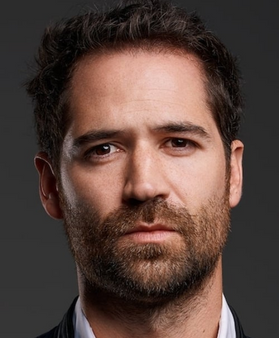Hands-On Film Workshops at NYFA
The 6-Week Holiday Filmmaking Workshop brings students through the fundamentals of film, helping them learn the creative and technical skills they need to be a confident director. The program is a great fit for new filmmakers, with classes and projects specifically designed to understand the art and technique of visual storytelling.
Workshop DescriptionWorkshop Name: 6-Week Special Holiday Filmmaking Workshop
This workshop follows the six-week filmmaking workshop curriculum, and during the program, students write, direct, and digitally edit three short films. The 6-Week Special Holiday Filmmaking Workshop runs from early December until late January with a two-week holiday break in the middle. Many students use the two-week break to work on the preproduction of their final film. This workshop is offered at a discounted rate.
Throughout the course, students may get one-on-one consultations from instructors, and will receive constructive critique from the other students in the program. The workshop ends with a screening of their final film, where students can invite family and friends to view their work. Many graduates of the 6-Week Special Holiday Filmmaking Workshop often continue their studies by enrolling in our 1-Year Filmmaking Program.
NYFA also offers the possibility to learn filmmaking from anywhere through a variety of online filmmaking workshops.
To learn more, see NYFA’s Course Catalog or request more information.
Class Details
Directing
The core of the Holiday Program, this Area of Study introduces students to all major aspects of filmmaking. Students will learn to concepts to help achieve maximum psychological impact by studying the director’s decisions in camera placement, blocking, staging, and visual image design. Students will be challenged to think comprehensively about their film projects in terms of the economic realities of low budget student production. Using their own film projects as prototypes, students will learn to break down their film scripts in terms of story and emotional beats, shot selection and composition, and budgeting and scheduling. This Area of Study will be the forum for preparing, screening and critiquing two short films.
Hands-On Camera
In Hands-On Camera, students undergo intensive training in the use of HD digital video cameras and their accessories. Through hands-on workshops and tests, they will also learn fundamental lighting techniques. As they progress through the workshop, they learn how to support the mood of the story with lighting choices and they experiment with expressive lighting styles.
Hands-On Editing
Editing presents students with multiple aesthetic approaches to editing film and video. Students will learn how to apply concepts such as temporal continuity and spatial continuity, as well as less traditional discontinuous editing techniques to their work. The Area of Study will also discuss the psychological and emotional effects of editing on the overall story. Additionally, students will learn to operate an editing software, which they will use to edit their own films. Classes are supplemented with individual consultations at the computer.
Screenwriting
This Area of Study introduces the established tools and language used in writing a film project. Students will take a story from the initial idea to script with an emphasis on the fundamentals of visual storytelling. The intersection of story structure, theme, character, tension, and conflict is examined through detailed scene analysis. The in-class discussion provides students with constructive analysis and support. Students are encouraged to tell their stories visually, rather than relying on dialogue.
Advanced Directing
A continuation of directing, students expand upon lessons already learned with a focus on the preproduction of their Non-Sync Final Film projects. Additionally, the basic concepts of production sound will be discussed, explored, and practiced in the course.
Advanced Screenwriting
In Advanced Writing, students learn to incorporate what they’ve learned about visual storytelling for a non-sync film. Scripts for the Final Film will be written, and revised in a workshop environment.
Hands-On Advanced Editing
Advanced Editing prepares students for the challenges inherent in cutting a more complex narrative film with multiple soundtracks. Additionally, the basic concepts of post-production sound will be discussed, explored, and practiced in the course.
TIMES AND BREAKDOWN BY WEEK
These are intensive, full-time Monday through Friday programs that typically run in three x 3hr sessions from 9 AM-6:30 PM. There are breaks in between sessions. Depending on the workshop, there may be shoots held on the weekend. Students will need to anticipate extra time outside of class to complete assignments, projects, and exercises. Daily class times may vary. Request information to learn more.
PROGRAM AND SOFTWARE REQUIREMENTS
This course requires the following software and equipment:
- External hard drive (costs $30-$200)
- An SD Card
6-Week Holiday Filmmaking Workshop
| Location | Program Start Date and End Date | Tuition |
|---|---|---|
| New York City | December 1, 2025 – January 25, 2026 December 7, 2026 – January 16, 2027 | Tuition and Equipment & Technology FeeTuition:$2,598 Equipment & Technology Fee:$604 Wellness Services & Programming Fee:N/A |
| Los Angeles | December 1, 2025 – January 25, 2026 December 7, 2026 – January 16, 2027 | Tuition and Equipment & Technology FeeTuition:$2,598 Equipment & Technology Fee:$604 Wellness Services & Programming Fee:N/A |
| Miami | December 1, 2025 – January 25, 2025 | Tuition and Equipment & Technology FeeTuition:$2,598 Equipment & Technology Fee:$604 Wellness Services & Programming Fee: |
During this workshop, there is a two-week holiday break.
Students in the 6-Week Special Holiday Filmmaking Workshop complete three films. For the final project, students direct and edit a longer film of up to ten minutes in length, and incorporate multiple tracks of sound including music, sound effects, ambient sounds, and/or voiceover. To learn more, please visit our projects page .
Please note: Equipment, curriculum, and projects are subject to change and may vary depending on location. Students should consult the most recently published campus catalog for the most up-to-date curriculum.



